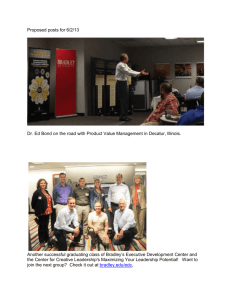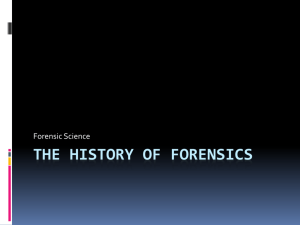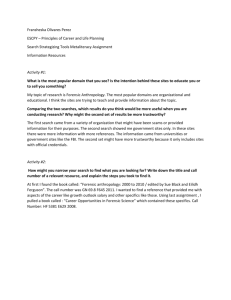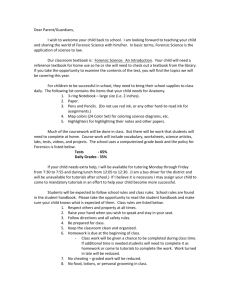Life in the lab: from crime scene to court Kate Bradley
advertisement
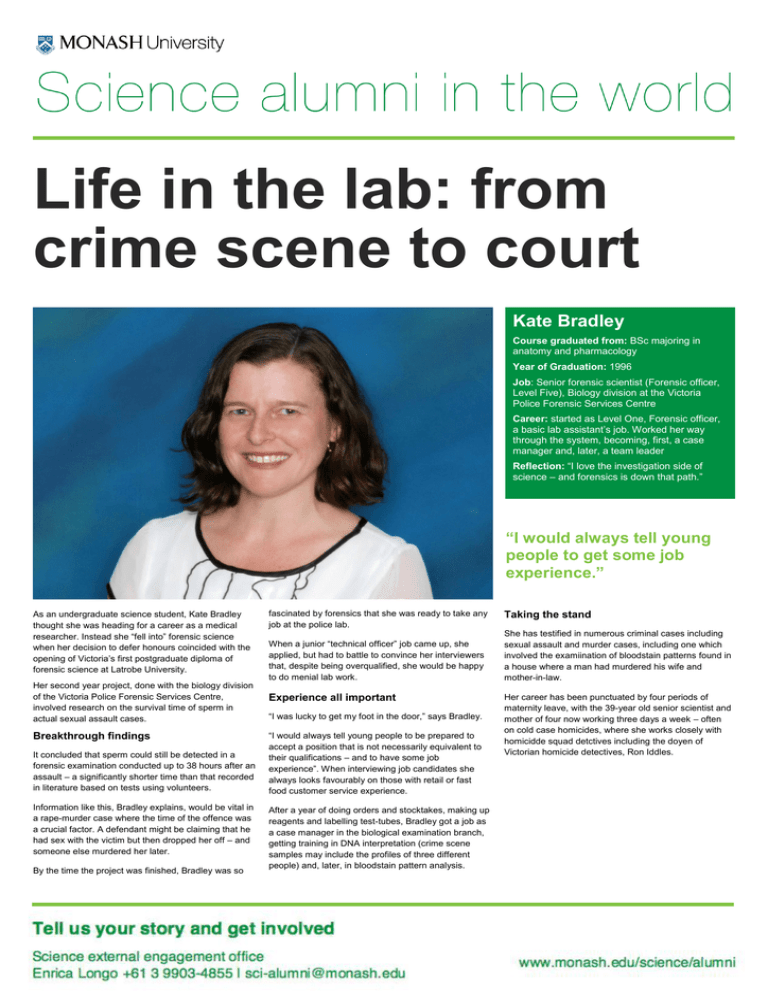
Life in the lab: from crime scene to court Kate Bradley Course graduated from: BSc majoring in anatomy and pharmacology Year of Graduation: 1996 Job: Senior forensic scientist (Forensic officer, Level Five), Biology division at the Victoria Police Forensic Services Centre Career: started as Level One, Forensic officer, a basic lab assistant’s job. Worked her way through the system, becoming, first, a case manager and, later, a team leader Reflection: “I love the investigation side of science – and forensics is down that path.” “I would always tell young people to get some job experience.” As an undergraduate science student, Kate Bradley thought she was heading for a career as a medical researcher. Instead she “fell into” forensic science when her decision to defer honours coincided with the opening of Victoria’s first postgraduate diploma of forensic science at Latrobe University. Her second year project, done with the biology division of the Victoria Police Forensic Services Centre, involved research on the survival time of sperm in actual sexual assault cases. Breakthrough findings It concluded that sperm could still be detected in a forensic examination conducted up to 38 hours after an assault – a significantly shorter time than that recorded in literature based on tests using volunteers. Information like this, Bradley explains, would be vital in a rape-murder case where the time of the offence was a crucial factor. A defendant might be claiming that he had sex with the victim but then dropped her off – and someone else murdered her later. By the time the project was finished, Bradley was so fascinated by forensics that she was ready to take any job at the police lab. When a junior “technical officer” job came up, she applied, but had to battle to convince her interviewers that, despite being overqualified, she would be happy to do menial lab work. Experience all important “I was lucky to get my foot in the door,” says Bradley. “I would always tell young people to be prepared to accept a position that is not necessarily equivalent to their qualifications – and to have some job experience”. When interviewing job candidates she always looks favourably on those with retail or fast food customer service experience. After a year of doing orders and stocktakes, making up reagents and labelling test-tubes, Bradley got a job as a case manager in the biological examination branch, getting training in DNA interpretation (crime scene samples may include the profiles of three different people) and, later, in bloodstain pattern analysis. Taking the stand She has testified in numerous criminal cases including sexual assault and murder cases, including one which involved the examiination of bloodstain patterns found in a house where a man had murdered his wife and mother-in-law. Her career has been punctuated by four periods of maternity leave, with the 39-year old senior scientist and mother of four now working three days a week – often on cold case homicides, where she works closely with homicidde squad detctives including the doyen of Victorian homicide detectives, Ron Iddles.

